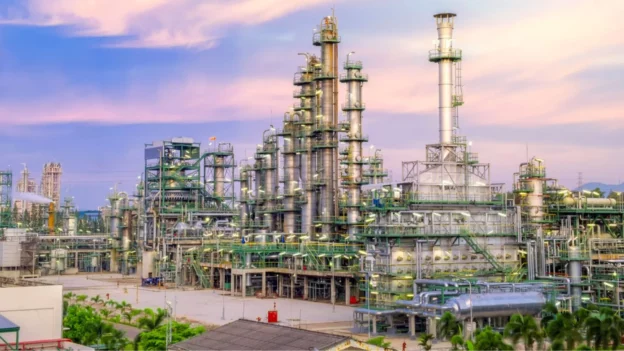The world’s first commercial-scale electric cracking plant has been inaugurated at BASF’s Verbund plant in Ludwigshafen, Germany, thanks to the collaboration between chemical companies BASF, Sabic and Linde.
Improvements in electrical cracking technology
This milestone represents a significant advance beyond the pilot phase, marking a turning point in the practical application of electrical cracking technology. Two electrically heated steam cracking furnaces have been put into operation at this demonstration plant, fully integrating with the existing crackers in Ludwigshafen.
According to the joint statement issued by the companies, the plant is expected to produce propylene, ethylene and potentially heavier olefins .
Operation of the electric cracking plant
The design of this demonstration plant is primarily intended to evaluate the continued performance of electric furnaces and collect data to support future developments in this technology. Each of the ovens implements a different electrical heating technology, allowing a comprehensive comparison of their efficiency and effectiveness.
A highlight of this initiative is the use of renewable electricity instead of conventional fossil fuels, which is estimated to reduce CO₂ emissions by up to 90%. In terms of processing capacity, the two furnaces are expected to be capable of processing approximately 4 tonnes per hour of hydrocarbon feedstock , with energy consumption estimated at 6 MWh.
The commitment of companies towards a common objective
The collaboration between BASF, Sabic and Linde was initially announced in 2021, highlighting each company’s commitment to innovation and technological development in the industrial sector. BASF and Sabic contribute their experience in operating steam crackers, while Linde contributes its intellectual property and know-how in steam cracking furnace technologies. This strategic partnership demonstrates a collaborative approach to addressing environmental and technological challenges, driving the transition towards more sustainable and efficient processes in the chemical industry.
The successful implementation of electric cracking technology at BASF’s Verbund plant not only represents a significant achievement in terms of industrial innovation, but also highlights the chemical sector’s commitment to decarbonization and emissions reduction.
This advance lays the foundation for greater adoption of sustainable technologies in the industry , promoting environmental resilience and long-term competitiveness. Furthermore, it emphasizes the importance of cross-sector collaboration and knowledge sharing to drive the transformation towards a greener and more sustainable economy.
Follow us on social networks and don’t miss any of our publications!
Inspenet.com YouTube LinkedIn Facebook Instagram X
Source: argusmedia.com
Photo: Shutterstock

